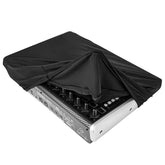A Professional Guide to Mastering Your Instrument
1. Choose the Right Instrument
First, you need to choose an instrument that you are genuinely interested in and that suits you. Passion is the best teacher; only when you truly love the instrument will you have the motivation to keep practicing. Additionally, consider your fingers, body conditions, and musical style. For example, the violin suits flexible fingers, while the saxophone requires strong lung capacity.
2. Set Clear Learning Goals
Clear goals give your learning direction. Short-term goals can be learning a new piece or mastering a new technique, while long-term goals might be reaching a certain performance level or participating in a music competition. Break down big goals into smaller ones and achieve them step by step. This approach gives you a sense of accomplishment and makes it easier to persist.
3. Find a Good Teacher or Course
A good teacher or course can provide professional guidance and feedback, helping you avoid detours. When choosing a teacher, consider their playing level, teaching experience, and interaction with students. If you don't have access to a teacher, you can learn through quality online courses and tutorials.
4. Maintain a Regular Practice Schedule
Mastering an instrument requires a lot of practice time, but regularity is just as important. Schedule a fixed time for practice each day, even if it's only 30 minutes at a time, as it is more effective than practicing once a week. Focus your attention during practice to avoid distractions, which will improve the quality of your practice.
5. Emphasize Basic Skills Training
Whether you are a beginner or an advanced player, basic skills training is essential. Basic skills include scales, arpeggios, and finger exercises. These exercises may be tedious, but they form the foundation of playing complex pieces. Dedicate a portion of your practice time each day to basic skills, and over time, you will notice significant improvements in your playing technique.
6. Listen, Watch, and Feel More
In addition to practicing, listening to music, watching performances, and experiencing the musical atmosphere are also important parts of learning. By listening to different styles of music, you can broaden your musical horizons and learn different playing techniques and expressions. Watch excellent concerts or performance videos, observe their fingerings, postures, and emotional expressions, and learn from them.
7. Participate in Performances and Exchanges
Participating in performances and exchanging with other musicians are great ways to improve yourself. Performances can train your ability to perform on the spot and increase your confidence. Interacting with other musicians can provide new inspirations and experiences, helping you discover your shortcomings and improve. If possible, join a band or participate in musical activities to continuously grow through practice.
8. Stay Patient and Persistent
Mastering an instrument is a long-term process that requires patience and persistence. Do not give up because of temporary difficulties and setbacks. Remember that every music master has reached their current level through countless practices and efforts. Keep your love for music, believe in your hard work, and you will eventually see your progress and achievements.







